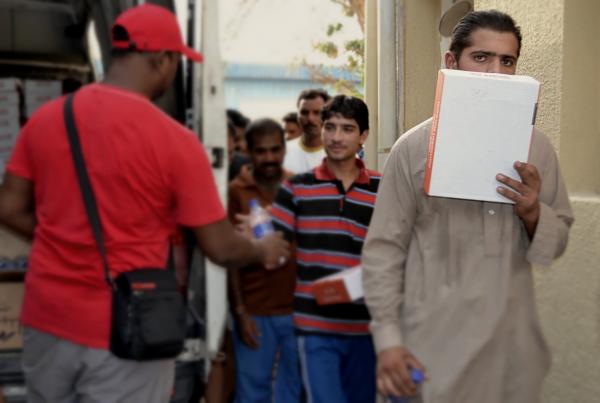
In recent years, international migration has reached a firm place on the global policy agenda as evidenced by a flurry of activities amounting to the emergence of what some would call the ‘global governance of migration’.
Recognition that, as a policy field, international migration for work requires not only bilateral, but effective global regulation has come very late when compared to other issue areas that have been subject to global governance for some time, such as trade, health and finance. Yet, international migration is among the key features of economic globalisation today and as a truly global phenomenon, migration implicates most, if not all, countries in the world in one form or another, as migrant sender and/or receiver.
Most forms of migration have employment-related aspects as it is largely a response to lacking economic opportunities under conditions of insufficient or non-existing social safety nets provided by states. This is compounded by the fact that much migration occurs within regions or in a ‘South South’ context: according to the United Nations, “among people who move across national borders, just over a third moved from a developing to a developed country”. The significance of intra-regional migration in the Global South has implications for the common claim that migration contributes to development and poverty alleviation. Migrants tend to find themselves in a state of precariousness on the basis of labouring in low-wage sectors, often in an undocumented or contract-tied manner and then again post-migration when returning home to often still hopeless situations which drive them to re-migrate. In addition, they are subject to multiple forms of precarity in legal and social terms, beyond those directly related to employment.
The discourse and policy prescriptions that have resulted so far from this new international cooperation on migration has largely centred upon what some have referred to as “the paradigm of managed temporary labor migration”. The ‘management of migration’ discourse is linked to the renewed interest in migration’s contribution to development (‘migration-development-nexus’), placing great emphasis on the design of formal policies by which origin and destination states try to assert control over migratory flows and employment—that is, over income and profit generation as well as the securing of livelihoods through migration.
Being in practice embedded in an increasingly restrictive policy environment, current policy practices heavily circumscribe the human rights of migrants, which are well set out in existing international instruments. As low-skilled/low-wage temporary contract workers, many migrants find themselves in highly vulnerable and exploitative situations. Thus, migration governance continues to fail in several key areas as reflected in decent work deficits in regard to labour rights, employment opportunities and social protection. It is the nascent global migrant rights movement, supported by various global trade unions, that is advocating for a rights-based approach to migration. ‘Social protection for all’ has thereby emerged as one of the key campaigns uniting migrant rights advocates around the world.
It is the objective of this WUN project to investigate the linkages between migration and social protection from a rights perspective in the context of intra-regional migration in three regions (Europe, Latin America, and Asia) and applied to three key groups of migrants: unaccompanied children, refugees and labour migrants. It is the combined expertise by the three universities (and the existing research clusters or groups established by each) involved that will produce a cross-regional and inter-group comparative analysis of the kind that has not yet been carried out.
In September 2015, the group convened at a workshop in Geneva, which resulted in a brief published by the United Nations Research Institute for Social Development (UNRISD). The brief makes suggestions on how to overcome migrant precarity and move a rights-based migration agenda forward. Read the brief here.
Selected outcomes
“Redefining a Rights-Based Approach in the Context of Temporary Labour Migration in Asia” (The United Nations Research Institute for Social Development (UNRISD), Working Paper 2016-11, September 2016)
“Migrant Nurses and Care Workers Rights in Canada” (The United Nations Research Institute for Social Development (UNRISD), Working Paper 2016-9, August 2016)
“Regulating “Illegal Work” in China” (The United Nations Research Institute for Social Development (UNRISD), Working Paper 2016-6, June 2016)
Workshop held in Geneva in September 2015 produced a brief published by the United Nations Research Institute for Social Development (UNRISD). The brief makes suggestions on how to overcome migrant precarity and move a rights-based migration agenda forward.
